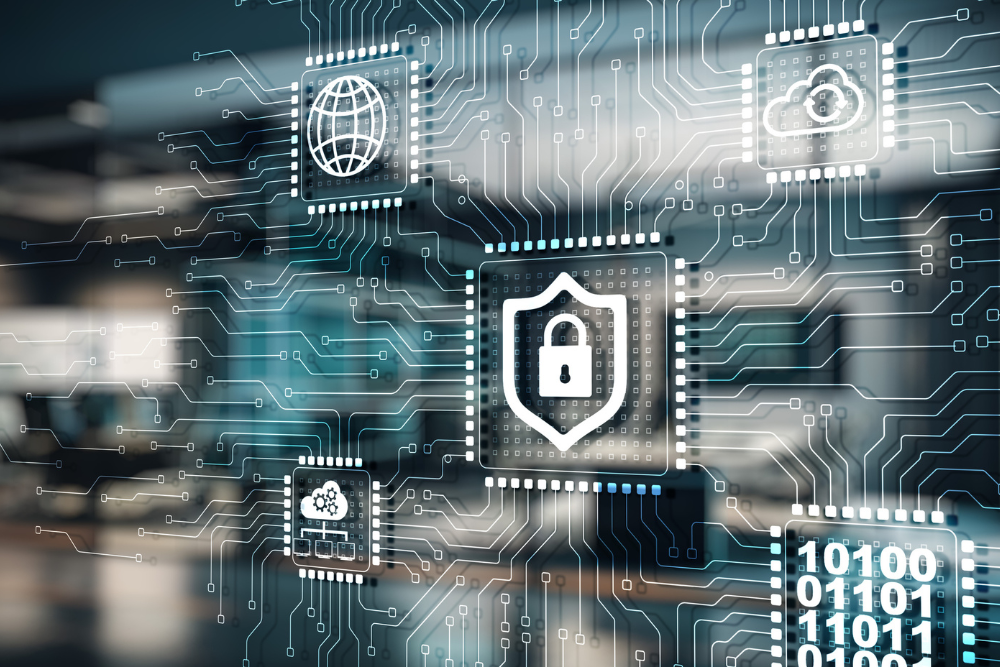The world of business has rapidly shifted towards online and remote working. With that came improved productivity, cost savings associated with hiring and office maintenance, as well as improved market outreach due to a wider understanding of the digital world. However, research has suggested that barely a fifth of all small businesses ensure their information is protected against cyberattacks. Cybersecurity has evolved with the digital ecosystem, where both threats and solutions have developed rapidly. To ensure your business is protected against cyberattacks, you need to stay informed to remain ahead of the curve. Here are some vital trends in cybersecurity that small businesses should expect in the coming years.
The Changing Cybersecurity Landscape
Now, you might be thinking that cybersecurity is an expensive endeavor for little gain. After all, if you run a small business, who would want your data?
Unfortunately, even small businesses are frequent targets of cyberattacks. Verizon’s Data Breach Investigation Report suggests that over 60% of all small and medium-sized businesses (SMBs) were targeted by cyberattacks in 2021.
So, what gives?
The answer lies in ransomware. Ransomware is a relatively straightforward type of cyberattack where a malicious actor finds vital documentation that the company needs to function, steals it, and prevents the company from accessing those files. To get the access back, the company needs to pay the attacker (who might not even return the files after being paid). In 2021, more than 80% of all cyberattacks on SMBs were done by ransomware.
Recently, ransomware attacks ramped up with a so-called double extortion tactic. Besides encrypting the company’s files, the attackers threaten to release the company’s confidential data if they aren’t paid. This adds urgency to the attack and makes companies double down on paying the attackers. In return, they become prime targets for future attacks.
The threat has been made worse by the advancement of AI. With generative AI capabilities, more people can learn how to conduct cyberattacks. While the threat from novices might be low, they typically target SMBs with minimal to no cybersecurity practices in place to get an easy victory, so to speak.
AIs can also churn out content at an alarming rate, which makes ransomware much more common since it can target a much wider group of companies. If the current adoption rates of cybersecurity methods continue, ransomware could become a true digital pandemic.
Additionally, AI isn’t used for learning only. Reinforcement learning and generative networks can create new software based on limited examples. If fed helpful data, such as the current cybersecurity information a company uses, the AI can make a new attack that the system isn’t protected against. This leads to an arms race, with companies leveraging generative AI and automated defense systems to detect and react to ongoing threats.
Another advancement in cryptography is the rise of quantum computers. While still in development, quantum computers can decrypt commonly-used encryption methods in record time. That’s why NIST has announced quantum-resistant encryption methods, which have promising applications and can elevate current cybersecurity standards to a new level.
However, it’s not only the technical capabilities of the attacks that are changing. With more devices connected to the internet, such as printers, scanners, cameras, and cars, they create new avenues for attack by cybercriminals. This means that cybersecurity for businesses must take a holistic approach. It’s not only the primary data repository that needs to be secured. Devices used to input and output information need to be accounted for as well.
In most cases, the devices don’t come with any cybersecurity measures, have weak default passwords that users rarely change, and contain barely any capacity for adding features. As a result, companies have to actively seek additional cybersecurity efforts, modify their existing hardware, and train personnel to responsibly use technology to get a modicum of security.
The rapid globalization of business transactions has also led to supply chains becoming a significant weak point in industrial cybersecurity. Since supply chains rely on aligning several potentially vital links together, a single disruption can cause significant damage to a business, preventing it from operating normally. The most apt analogy in physical systems is the Ever Given incident in 2021. This single blockage point of the Suez Canal resulted in global supply chain issues. Similar things can happen to digital systems, locking out vital applications or companies that many others rely on to maintain their workflow pipelines.
How Small Businesses Can Improve Cybersecurity
The best way to prepare against these threats is to conduct a detailed cybersecurity audit. This doesn’t have to be heralded by a professional cybersecurity provider.
Companies can quickly identify what vital data they hold and how it affects their daily operations. Then, the audit should overview how this information passes through various communication channels and pipelines, each of which can be considered a potential weak point. Finally, the company should carefully consider the people factor, i.e. which team members have access to crucial information that could be leveraged in a cyberattack.
After an audit, companies should develop a detailed cybersecurity strategy to protect their assets and deter attacks. The strategy should include the following:
- Network security to protect online information
- End-point security for hardware that handles vital data
- Data protection to protect crucial files
- User training on proper cybersecurity measures and phishing recognition
- Incident response and data recovery methods
Of course, the strategy won’t do a company much good without proper investment. This goes above purchasing software to protect your files from unauthorized entry. Larger companies often have to hire skilled personnel to conduct timely audits, determine weak points, and maintain cybersecurity efforts with regular training. Small businesses will need to determine which aspects of cybersecurity are the most pressing concern and start dealing with them one by one.
As mentioned, cybersecurity isn’t a fire-and-forget deal. Companies should conduct periodic security assessments to ensure their efforts can withstand the most common threats. One of the most common examples is to simulate phishing campaigns. With these, businesses can determine how prepared employees are against these attacks, evaluate how to conduct more training, and refine their cybersecurity goals.
How to Get Started?
With the rapid advancement of cyber threats, companies need to account not only for current types of attacks, but also look ahead at how to improve their organization and pipelines to shore up weak points. This can be a monumental task that many businesses delay doing until they actually get attacked and lose vital information, profit, and reputation.
One of the best ways to start implementing cybersecurity in a business is to enlist experts to perform audits and create detailed plans and structures. Companies operating in St. Louis, Missouri, Columbia, Missouri, and Western Illinois in general can consult Da-Com as a local business IT expert. With rigorous security standards, Da-Com is prepared to help businesses tackle daily threats and ensure seamless workflows. Contact Da-Com to learn more about our offer and take cybersecurity into your own hands.







Leave A Comment